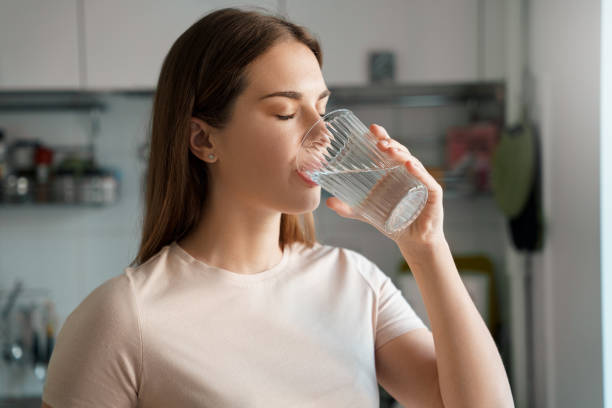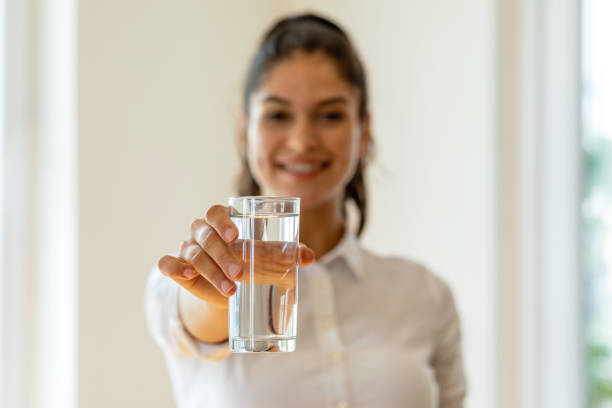How Much Hydrogen Water A Day? Effective Usage Tips for Beginners
Hydrogen water is regular water infused with hydrogen gas, known for its potential antioxidant and anti-inflammatory benefits. This article explores the optimal daily intake of hydrogen water and provides practical tips to maximize its effectiveness, helping you incorporate it into your daily routine efficiently.

For anyone who has limited time to read all the guidelines, I filter the most concise piece of information for you:
For a quick guide: Drink 300-600 ml of hydrogen water daily for general wellness, and up to 900 ml if you’re active or have specific health goals. Store it in airtight bottles, keep it cool, and drink it immediately after preparation to retain its benefits. Drink in the morning, before/after workouts, and around meals for best results.
How Much Hydrogen Water A Day?
Recommended Daily Intake of Hydrogen Water
Determining the right daily intake of hydrogen water depends on your health goals. Whether you aim for general wellness, enhanced athletic performance, or specific health conditions like inflammation or oxidative stress, the amount of hydrogen water you consume can vary.

For General Wellness:
If your goal is overall health maintenance, consuming 300-600 ml of hydrogen water per day, equivalent to 1-2 glasses (assuming a standard 300 ml glass), is generally recommended. This amount supports daily hydration while providing a steady supply of molecular hydrogen, which acts as a potent antioxidant.
For Athletic Performance:
Athletes or individuals engaged in intense physical activity may benefit from a slightly higher intake. A daily intake of 600-900 ml (about 2-3 glasses) can help reduce oxidative stress induced by exercise and support faster recovery. Drinking hydrogen water before and after workouts may also enhance performance by improving hydration and reducing muscle fatigue.
For Specific Health Conditions (e.g., Inflammation, Oxidative Stress):
For individuals managing chronic inflammation or conditions related to oxidative stress, the recommended daily dosage can range from 900 ml to 1 liter (approximately 3-4 glasses). Higher hydrogen concentrations have been shown to exert more significant antioxidant effects, which can be beneficial in mitigating the symptoms associated with these conditions.
The recommended daily intake of hydrogen water can vary based on several factors:
- Activity Level: More physically active individuals may require a higher intake to compensate for the increased oxidative stress from exercise.
- Body Weight: Heavier individuals may benefit from a slightly increased intake to ensure adequate distribution of hydrogen throughout the body.
- Age: Older adults, who may experience higher levels of oxidative stress, might need to adjust their intake accordingly.
It is crucial to tailor your hydrogen water intake based on these individual factors to maximize the benefits. For example, an active individual weighing 80 kg might need more hydrogen water than a sedentary person weighing 60 kg.
Several scientific studies have investigated the optimal amount of hydrogen water for different health outcomes:
- A study published in the Journal of Clinical Biochemistry and Nutrition found that daily consumption of 500-600 ml of hydrogen water led to significant reductions in oxidative stress markers among healthy adults.
- Another research article in Medical Gas Research highlighted that athletes who consumed 800 ml of hydrogen water daily experienced faster recovery times and less muscle soreness post-exercise.
- Expert guidelines from health professionals generally recommend a daily intake of 300-900 ml of hydrogen water, depending on individual needs and goals. This range is considered safe and effective for most people.
Health professionals emphasize that while hydrogen water is generally safe, it is important to start with the lower end of the recommended dosage, particularly for beginners. This allows the body to adapt and helps observe any initial effects before increasing the intake.
Factors Influencing the Right Amount
Age, weight, and activity level
Age:
As we age, the body’s oxidative stress levels tend to increase, influencing the amount of hydrogen water needed to maintain cellular health. Older adults may require slightly more hydrogen water to counteract the higher oxidative stress associated with aging. A general recommendation is to start with 300 ml daily and adjust upwards to 600 ml depending on individual response and needs.
Body Weight:
Body weight plays a crucial role in determining the appropriate hydrogen water intake. Heavier individuals may need a higher dosage to ensure that the hydrogen is effectively distributed throughout the body. For instance, individuals weighing over 70 kg might benefit from consuming 600-900 ml of hydrogen water daily, while those under 70 kg may find 300-600 ml sufficient.
Physical Activity Level:
Those with a high level of physical activity, such as athletes or individuals who engage in regular intense workouts, generally require more hydrogen water. Physical exertion increases oxidative stress, and additional hydrogen water can help mitigate this effect. Active individuals should consume 600-900 ml of hydrogen water, especially around exercise times—before, during, and after workouts.
General Guidelines:
- Start with a base of 300 ml per day for adults.
- Increase intake based on body weight: Add 100-200 ml for every 10 kg above 60 kg.
- Adjust for activity level: Increase by 200-300 ml if you exercise regularly.
Health conditions and goals
Chronic Inflammation:
For those suffering from chronic inflammation, hydrogen water can act as an anti-inflammatory agent. Studies suggest that individuals with such conditions might benefit from consuming 600-900 ml daily. This higher intake helps to reduce oxidative stress and inflammation markers in the body, providing relief over time.
Metabolic Disorders:
People with metabolic disorders, such as diabetes or obesity, may also find hydrogen water beneficial. The antioxidant properties of hydrogen can help manage oxidative stress associated with these conditions. A recommended intake of 500-800 ml per day may help manage symptoms and improve overall metabolic health.
General Health Goals:
For those aiming to improve general health or prevent age-related diseases, a moderate intake of 300-600 ml per day is usually sufficient. This amount supports daily hydration while providing the antioxidant benefits necessary for maintaining health.
Recommendations Based on Health Goals:
- Inflammation: 600-900 ml/day to reduce inflammation markers.
- Metabolic Disorders: 500-800 ml/day to manage oxidative stress.
- General Wellness: 300-600 ml/day for overall health maintenance.
Signs You May Be Drinking Too Much or Too Little
Potential side effects of overconsumption
Gastrointestinal Discomfort:
Drinking excessive amounts of hydrogen water could lead to gastrointestinal discomfort. This discomfort may include symptoms such as bloating or mild stomach cramps. The reason could be the rapid intake of large volumes of water or the body’s reaction to higher-than-needed levels of hydrogen. If you experience these symptoms, consider reducing your intake.

Inefficacy Due to Saturation:
Another potential downside of overconsumption is the diminished return on benefits. Hydrogen’s effectiveness may plateau at higher intakes, meaning that once your body has absorbed enough, additional consumption might not provide extra benefits. It’s important to stick to the recommended daily intake of 300-900 ml depending on your needs, as consuming more does not necessarily lead to greater health benefits.
Guidance on Adjusting Intake:
If you suspect that you are consuming too much hydrogen water, begin by reducing your intake by 100-200 ml per day until symptoms subside. Monitor your body’s response and adjust accordingly.
Signs of underconsumption and inefficacy
Lack of Expected Benefits:
One clear sign of underconsumption is not experiencing the expected health benefits, such as reduced oxidative stress, improved recovery after exercise, or general well-being. If you’ve been consistent with your hydrogen water intake but haven’t noticed any improvement, it might be time to evaluate your dosage.
Fatigue or Persistent Oxidative Stress Symptoms:
If you continue to experience fatigue, prolonged muscle soreness after exercise, or other symptoms associated with oxidative stress, you may not be consuming enough hydrogen water. These signs suggest that your body isn’t receiving sufficient hydrogen to counteract oxidative damage.
Guidance on Adjusting Intake:
To address underconsumption, gradually increase your intake by 100-200 ml per day, monitoring how your body responds. For example, if you currently consume 300 ml daily and notice inefficacy, try increasing it to 500 ml and observe any changes over a week. Adjust further if needed until you reach the optimal level for your health goals.
Effective Usage Tips for Beginners
How Often Should You Drink Hydrogen Water?
How many times a day should you drink hydrogen water?
Determining how often to drink hydrogen water depends on your daily needs and goals. For most people, consuming hydrogen water 2-3 times a day is recommended. This frequency ensures a steady supply of molecular hydrogen, helping maintain its antioxidant effects throughout the day.

Morning:
Start your day by drinking 300 ml of hydrogen water. This initial dose helps to hydrate your body and kickstart your metabolism. It also provides a morning boost of antioxidants, which can help combat oxidative stress from the previous day.
Midday or Pre-Workout:
For those who exercise or experience a midday energy slump, a second dose of 300 ml around lunchtime or before a workout can be beneficial. This timing helps to replenish hydrogen levels in the body, supporting muscle recovery and reducing fatigue during physical activity.
Evening:
End your day with another 300 ml of hydrogen water. Consuming it in the evening can aid in reducing oxidative stress accumulated throughout the day and promote restful sleep.
The frequency of using hydrogen water based on daily routines:
Sedentary Individuals:
If your daily routine involves minimal physical activity, two doses of 300 ml each—once in the morning and once in the evening—should suffice. This amount supports general wellness without overwhelming your system.
Active Individuals:
For those who are physically active, whether through regular workouts or a demanding job, three doses of 300 ml each—morning, pre-workout, and evening—are ideal. This frequency ensures that your body has enough hydrogen to combat oxidative stress and support recovery.
Example Routine for Sedentary Individuals:
- 7 AM: Drink 300 ml of hydrogen water with breakfast.
- 7 PM: Drink 300 ml of hydrogen water with dinner.
Example Routine for Active Individuals:
- 7 AM: Drink 300 ml of hydrogen water with breakfast.
- 12 PM: Drink 300 ml of hydrogen water before your midday workout or lunch.
- 8 PM: Drink 300 ml of hydrogen water after dinner or post-workout.
Reasoning Behind These Recommendations:
The reasoning for these recommended frequencies is based on the body’s need to maintain optimal hydrogen levels throughout the day. Drinking hydrogen water multiple times ensures that molecular hydrogen is available when your body needs it most—during periods of high oxidative stress, such as after waking up, during exercise, and at the end of the day.
Moreover, spreading your intake across the day allows your body to continuously benefit from hydrogen’s antioxidant properties, helping to protect against cellular damage, support metabolism, and enhance overall wellness.
When to Drink Hydrogen Water?
Best time to drink hydrogen water for maximum benefits:
Morning:
Start your day with 300 ml of hydrogen water. Drinking it first thing in the morning can help rehydrate your body after hours of sleep. It also provides a quick antioxidant boost, which can help neutralize free radicals accumulated overnight. This practice supports cellular health and prepares your body for the day ahead.

Before Workouts:
Consuming 300 ml of hydrogen water about 30 minutes before exercise is ideal. This timing allows hydrogen to be absorbed and ready to combat the oxidative stress generated during physical activity. Drinking hydrogen water before a workout can help improve performance, reduce fatigue, and support faster recovery.
After Workouts:
Post-exercise is another crucial time to drink hydrogen water. A dose of 300 ml after working out helps to reduce muscle soreness and accelerate recovery. It replenishes the hydrogen levels in your body, which are needed to counteract the oxidative stress caused by intense physical activity.
Drinking hydrogen water when meals:
Before Meals:
Drinking hydrogen water 15-30 minutes before a meal can support digestion. It helps prepare the digestive system by enhancing hydration, which is essential for the breakdown and absorption of nutrients. Additionally, hydrogen water’s antioxidant properties can help reduce oxidative stress, which may occur after consuming certain foods.
After Meals:
If you prefer, you can drink hydrogen water 30-60 minutes after a meal. This timing helps in neutralizing free radicals that are often produced during digestion. It also supports a steady metabolism, ensuring that your body effectively processes the nutrients from your meal.
Guidelines for Incorporating Hydrogen Water:
- Morning: 300 ml to start the day.
- Before Workouts: 300 ml 30 minutes before exercise.
- After Workouts: 300 ml immediately after exercising.
- Before Meals: 300 ml 15-30 minutes before eating.
- After Meals: 300 ml 30-60 minutes after eating.
How to Drink Hydrogen Water?
Best way to drink hydrogen water:
Drink Immediately After Preparation:
Hydrogen gas can dissipate quickly from water. To retain the maximum hydrogen concentration, drink it immediately after preparation. Whether you’re using hydrogen tablets or a hydrogen water machine, consuming it right away ensures that you get the full antioxidant benefits.
Use a Straw:
Using a straw can help reduce the exposure of hydrogen to air, which might minimize the loss of hydrogen gas. Sipping through a straw also allows for controlled intake, which can be more effective in ensuring consistent absorption.
Sipping vs. Gulping:
While both methods are effective, sipping slowly can help maintain a steady intake of hydrogen, which may be more beneficial over time. However, if you prefer, drinking it quickly is also fine, especially if you’re concerned about hydrogen escaping.

Tips on maintaining hydrogen levels in water for effective consumption
Store in Airtight Bottles:
To prevent hydrogen from escaping, store hydrogen water in airtight, preferably glass, bottles. Avoid containers that allow air exchange, as this can cause the hydrogen to dissipate. Storing your hydrogen water in a cool, dark place also helps preserve its hydrogen content.
Avoid Prolonged Exposure to Light and Heat:
Light and heat can accelerate the loss of hydrogen from water. Store your hydrogen water away from direct sunlight and avoid leaving it in warm places. If possible, keep it refrigerated to slow down the dissipation of hydrogen gas.
Prepare Hydrogen Water Just Before Drinking:
Hydrogen tablets and machines should be used to prepare water right before consumption. This practice ensures the highest possible hydrogen concentration, which is key to reaping its antioxidant benefits.
Comparing different methods: hydrogen tablets vs. hydrogen water machines:
| Aspect | Hydrogen Tablets | Hydrogen Water Machines |
| Convenience | Easy to use, portable, ideal for on-the-go | Requires setup, typically used at home |
| Cost | Lower initial cost, but recurring purchases needed | Higher initial cost, no recurring cost |
| Hydrogen Concentration | Can vary, generally lower than machines | Typically provides a higher and more consistent concentration |
| Preparation Time | Quick, usually dissolves in a few minutes | Takes a few minutes to generate hydrogen-rich water |
| Storage and Portability | Tablets are lightweight and easy to store | Machines are less portable, require space |
| Best For | Individuals with active lifestyles, beginners | Health enthusiasts, families, or regular users at home |
Advice on Choosing the Best Method
- Hydrogen Tablets: Best for those who need portability and convenience. Ideal for beginners or those who want to try hydrogen water without a significant investment.
- Hydrogen Water Machines: Suitable for regular users who consume hydrogen water daily. The higher upfront cost is balanced by long-term savings and higher hydrogen concentrations.
Common Mistakes to Avoid
Dos and Don’ts for beginners:
Don’t Drink Too Little:
One of the most common mistakes is not drinking enough hydrogen water. Many beginners start with a small amount, thinking it’s sufficient. However, to experience the full benefits, it’s essential to consume the recommended daily intake. Start with 300-600 ml per day and adjust based on your body’s needs and health goals.
Don’t Store Hydrogen Water Improperly:
Hydrogen is a gas that can easily escape from water if not stored correctly. Storing hydrogen water in open or non-airtight containers can lead to a rapid loss of hydrogen, making the water less effective. Always store hydrogen water in airtight, preferably glass, bottles to retain its hydrogen content.
Do Prepare Hydrogen Water Just Before Drinking:
Another mistake is preparing hydrogen water in advance and storing it for later use. Since hydrogen gas dissipates quickly, it’s crucial to prepare and drink it immediately. Whether you use hydrogen tablets or a machine, ensure you consume the water shortly after it’s ready.
Don’t Expose Hydrogen Water to Heat or Light:
Heat and light can accelerate the loss of hydrogen from water. Beginners often make the mistake of leaving their hydrogen water in warm places or direct sunlight. To preserve its effectiveness, store hydrogen water in a cool, dark place, and avoid exposing it to high temperatures.
Do Use a Straw for Drinking:
While not a requirement, using a straw can help minimize the exposure of hydrogen water to air, reducing the escape of hydrogen gas. This method is particularly useful if you’re sipping the water slowly.

How to store and handle hydrogen water to retain its properties:
Store in Airtight Bottles:
To keep the hydrogen gas from escaping, always use airtight containers. Glass bottles with tight seals are ideal. Avoid plastic bottles as they may not seal as effectively, and some plastics can degrade over time, potentially affecting the water’s quality.
Keep Hydrogen Water Away from Light:
Light, especially sunlight, can break down hydrogen molecules, reducing the water’s effectiveness. Store hydrogen water in a dark place, such as a cupboard or refrigerator. If you’re carrying it with you, use an opaque bottle that blocks light.
Avoid Heat Exposure:
Heat causes hydrogen to escape more rapidly from water. Store your hydrogen water in a cool environment, and avoid leaving it in hot areas, such as in a car or near a heat source. Refrigeration is one of the best ways to store hydrogen water and keep it cool.
Consume Quickly After Preparation:
As mentioned earlier, hydrogen dissipates quickly. To ensure you’re getting the maximum benefit, drink the hydrogen water immediately after it’s prepared. This practice is especially important if you’re using hydrogen tablets, which release hydrogen gas as they dissolve.
Handle with Care:
When handling hydrogen water, avoid shaking or vigorously agitating the bottle, as this can speed up the loss of hydrogen. Gently swirl the water if necessary, but try to minimize movement to keep the hydrogen intact.
Conclusion
For best results, drink 300-600 ml of hydrogen water daily for general wellness, increasing to 600-900 ml for active lifestyles or specific health goals. Drink it in the morning, before or after workouts, and around meals. In addition, consistency is key. Store hydrogen water in airtight bottles, keep it cool and drink it immediately after preparation to retain its benefits.
If you’re ready to boost your health with hydrogen water, visit our main website to find the best hydrogen water products for your needs!
FAQs
- Should you drink hydrogen water on an empty stomach?
Yes, drinking hydrogen water on an empty stomach can be beneficial. It allows for quicker absorption and may enhance the antioxidant effects, helping to neutralize free radicals first thing in the morning.
- Is hydrogen water good for the lungs?
Hydrogen water may support lung health due to its antioxidant properties, which can reduce oxidative stress. However, more research is needed to fully understand its effects on lung health.
- What is the best way to get hydrogen water?
The best way to get hydrogen water is by using hydrogen tablets or a hydrogen water machine. Tablets are portable and convenient, while machines provide a consistent and higher concentration of hydrogen.
- Which is better, alkaline or hydrogen water?
Hydrogen water is generally considered better for its antioxidant properties. While alkaline water can help balance pH levels, hydrogen water offers additional benefits, such as reducing oxidative stress and supporting overall wellness.
